Based on the six topics of rationality, confidence, money, regulation, business and globalisation, these imaginary radio programmes provide a pretext for discovering 18 renowned economists who have greatly influenced the currents of economic thinking.
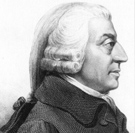
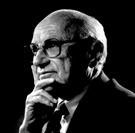
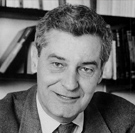
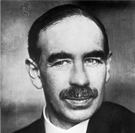
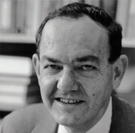
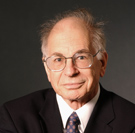
Choose your programme :
They are quoted in the programme, learn more about them :
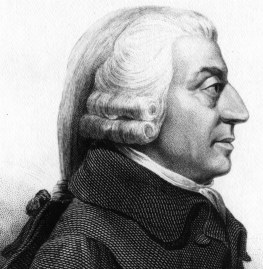 © Collection BSI/CSI
© Collection BSI/CSI Adam Smith
The Scottish philosopher and economist Adam Smith was born in 1723 in Kircalky (Scotland) and died in 1790 in Edinburgh. He is widely viewed as the father of political economics
At the age of 27, Smith was appointed to the Chair of Logic at the University of Glasgow and subsequently that of Moral Philosophy. In 1765, he spent a brief spell in France where he frequented economists such as Quesnay and Turgot. His principal work, "An Inquiry into the Nature and Causes of the Wealth of Nations" was published in London in 1776.
Smith demonstrated that the wealth of nations is born of the division of labour. A free trade thinker, he formulated the so-called "absolute advantage" law according to which all countries have an interest in specialising in productions which they achieve at the least cost and described the famous mechanism of the "invisible hand" which, in his view caused individual acts and the general interest to converge in a market economy.
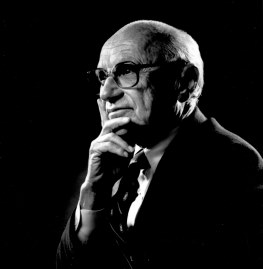 © The Friedman Foundation for Educational Choise/D.R.
© The Friedman Foundation for Educational Choise/D.R. Milton Friedman
Considered to be one of the most influential economists of the 20th century, the American Milton Friedman was born in New York and 1912 and died in San Francisco in 2006.
After studying economics and statistics at the University of Chicago then Columbia, he worked for the government as an economist before being appointed Professor of Economics at the University of Chicago. He was awarded the Nobel Prize for Economics in 1976 for his life's work and served as advisor to President Ronald Reagan through until 1988.
A free market economist, Friedman questioned the effectiveness of state interventions to combat unemployment. As a monetarist, he blamed inflation on excessive growth of the money supply.
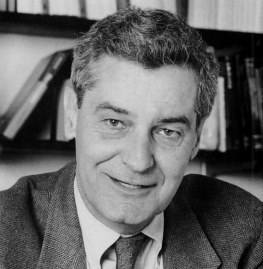 © University of Chicago, USA/Licence Creative Commons
© University of Chicago, USA/Licence Creative Commons Robert Lucas
Born in 1937 in Yakima (US state of Washington), Robert Lucas is an American economist and free-market thinker who represents the new classical school.
After studying history and economics at the University of Chicago, he took a teaching post at the Carnegie Institute of Technology in Pittsburgh, then Chicago. Influenced by the monetarist ideas of Friedman and Samuelson, Lucas was awarded the Nobel Prize for Economics in 1995 for his work on rational anticipations.
His theory affirms that economic agents anticipate the future – and adapt their behaviour as a consequence, at which stage, the interventionist policies of governments become pointless.
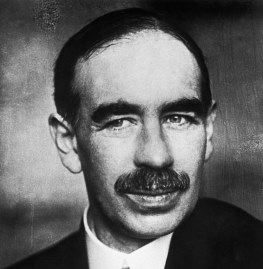 © Collection Bettmann/CORBIS
© Collection Bettmann/CORBIS John Maynard Keynes
The British economist John M. Keynes was born in Cambridge (United Kingdom) in 1883 and died in Firle, Sussex (United Kingdom) in 1946. He has had a considerable influence over western economic policies through to the present day.
A university professor trained in Cambridge, Keynes was a senior treasury official during the First World War. He became famous in 1936 with the publication of his book "The General Theory of Employment, Interest and Money" and was appointed financial adviser to the Crown. He headed the British delegation to the Bretton Woods Conference in 1944.
Reasoning in terms of macroeconomics, Keynes rejected the notion that a market economy is able to self regulate in order to achieve full employment and recommended intervention by the state in times of economic turmoil so as to shore up demand and stimulate investment.
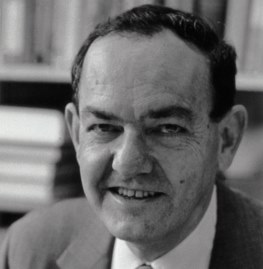 © Bettmann/CORBIS
© Bettmann/CORBIS Herbert A. Simon
An American economist and sociologist, Herbert A. Simon was born in 1916 in Milwaukee (Wisconsin) and died in 2001 in Pittsburgh (Pennsylvania).
After studying mathematics and economics at the University of Chicago, he headed up a research group at Berkeley then taught political science at the Illinois Institute of Technology. Involved in drafting the Marshall Plan signed in 1948, he served as an expert advisor to Presidents Johnson and Nixon. In 1978, he was awarded the Nobel Prize for Economics for his work on the decision-making process.
Distancing himself from the neoclassical theory of rational choice, according to which the individual is capable of deciding for the best in all circumstances, he demonstrated that the cognitive capacities of decision-makers are always limited, meaning that their choices are never optimal (theory of bounded rationality).
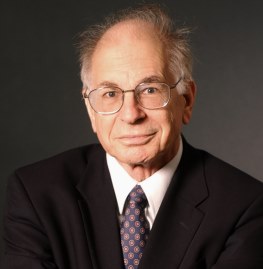 © University of Princeton, USA/Licence Creative Commons
© University of Princeton, USA/Licence Creative Commons Daniel Kahneman
Born in 1934 in Tel Aviv, Daniel Kahneman is an American-Israeli psychologist.
After obtaining a doctorate in clinical psychology, in 1961 he began teaching at the Hebrew University of Jerusalem and, together with Amos Tversky, published a series of articles on decision-making in situations of uncertainty, the most famous of which appeared in 1979. He began working at the University of Princeton in 1993, after spells with the University of Vancouver and then the University of Berkeley. In 2002, he was awarded the Noble Prize for Economics jointly with Vernon Smith for his work on neuroeconomics and experimental economics.
To develop his theory of perspectives, Daniel Kahneman based himself on observation of human beings. He introduced the notion of uncertainty (related to individual behaviour) in the laws of the market and challenged standard economic modelling of risk.
